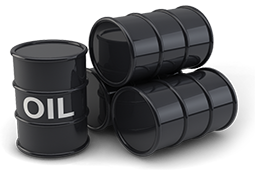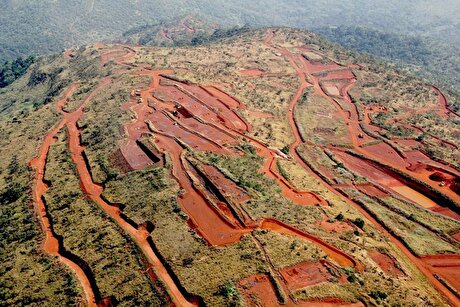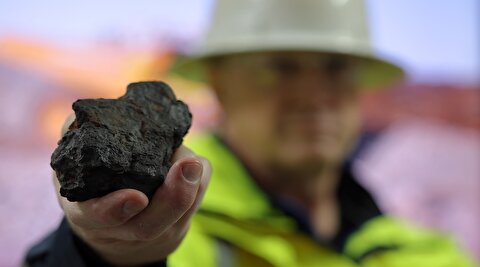
Creditors succeed in auctioning PdV oil in Curacao

In this instance, no agreement could be reached with the creditors, and the auction went through on 11 December at the Willemstad law firm of Ox and Wolf.
The case was initiated by four Curacao shipping companies, and was later joined by Greek and UK companies, an attorney for the plaintiffs told Argus.
The crude was sold for 12mn Netherlands Antillean guilders ($6.7mn), or the below-market price of $33/bl. The auctioned oil includes 199,882 bl of Venezuelan 42°API Santa Barbara crude and 3,420 bl of 11.2°API Tia Juan Heavy, according to the legal notice of the auction.
The crude is currently stored at Bullen Bay terminal, after a local court ordered its discharge off the Panama-flagged Aframax Icaro, one of the oil tankers that was recently added to a growing US sanctions list aimed at the Venezuelan government. The crude buyer could not be confirmed.
The auction was supposed to have taken place at 11am local time (10am ET) on 11 December, but the process was postponed until 4pm when another creditor attempted unsuccessfully to step in with a separate claim.
In recent years, PdV's oil and oil tankers have been subject to frequent debt-related seizures in the Dutch Caribbean, where the legal threshold for liens is lower than in other jurisdictions. But the company has often settled the cases. The Icaro itself has been targeted on at least one previous occasion.
PdV's Isla refinery subsidiary in Curacao declined to comment on the auction.
The legal blow to PdV coincides with economic mayhem on the island, where the Venezuelan company is currently negotiating a short-term agreement with the local government to continue operating the 335,000 b/d Isla refinery and Bullen Bay terminal that it has leased for decades. PdV's current operating lease for the assets expires at the end of December, leaving local jobs in limbo unless a new deal is reached. "PdV has our back to the wall," a glum Curacao official told Argus.
Adding to the chaos is this week's closure of Curacao's GiroBank where PdV has its deposits. The bank collapse, which is blamed on years of mismanagement, has sown panic on the island, on top of separate worries over the possible refinery closure.
Curacao has been struggling to sever economic ties with PdV, which has long counted on deepwater Bullen Bay to facilitate exports. The island facilities are part of the company's broader Dutch Caribbean logistical network that is now largely dormant because of PdV's substantial financial problems, which it blames on US sanctions.
Curacao is temporarily exempted from US sanctions in order to continue working with PdV until another refinery operator is lined up. The government's exclusive talks with German refiner and trader Klesch have so far not yielded an agreement.
Curacao's foreign policy is controlled by the Netherlands, a member of the EU which does not recognize Venezuelan president Nicolas Maduro. Most Western countries recognize US-backed opposition leader Juan Guaido, but the opposition movement has faltered amid corruption scandals and infighting.
By Patricia Garip


Gold price edges up as market awaits Fed minutes, Powell speech

Glencore trader who led ill-fated battery recycling push to exit

Emirates Global Aluminium unit to exit Guinea after mine seized

Iron ore price dips on China blast furnace cuts, US trade restrictions

Roshel, Swebor partner to produce ballistic-grade steel in Canada

US hikes steel, aluminum tariffs on imported wind turbines, cranes, railcars

EverMetal launches US-based critical metals recycling platform

Afghanistan says China seeks its participation in Belt and Road Initiative

Trump weighs using $2 billion in CHIPS Act funding for critical minerals

First Quantum drops plan to sell stakes in Zambia copper mines

Ivanhoe advances Kamoa dewatering plan, plans forecasts

Texas factory gives Chinese copper firm an edge in tariff war

Pan American locks in $2.1B takeover of MAG Silver

Iron ore prices hit one-week high after fatal incident halts Rio Tinto’s Simandou project

US adds copper, potash, silicon in critical minerals list shake-up

Barrick’s Reko Diq in line for $410M ADB backing

Gold price gains 1% as Powell gives dovish signal

Electra converts debt, launches $30M raise to jumpstart stalled cobalt refinery

Gold boom drives rising costs for Aussie producers

First Quantum drops plan to sell stakes in Zambia copper mines

Ivanhoe advances Kamoa dewatering plan, plans forecasts

Texas factory gives Chinese copper firm an edge in tariff war

Pan American locks in $2.1B takeover of MAG Silver

Iron ore prices hit one-week high after fatal incident halts Rio Tinto’s Simandou project

US adds copper, potash, silicon in critical minerals list shake-up

Barrick’s Reko Diq in line for $410M ADB backing

Gold price gains 1% as Powell gives dovish signal

Electra converts debt, launches $30M raise to jumpstart stalled cobalt refinery

















